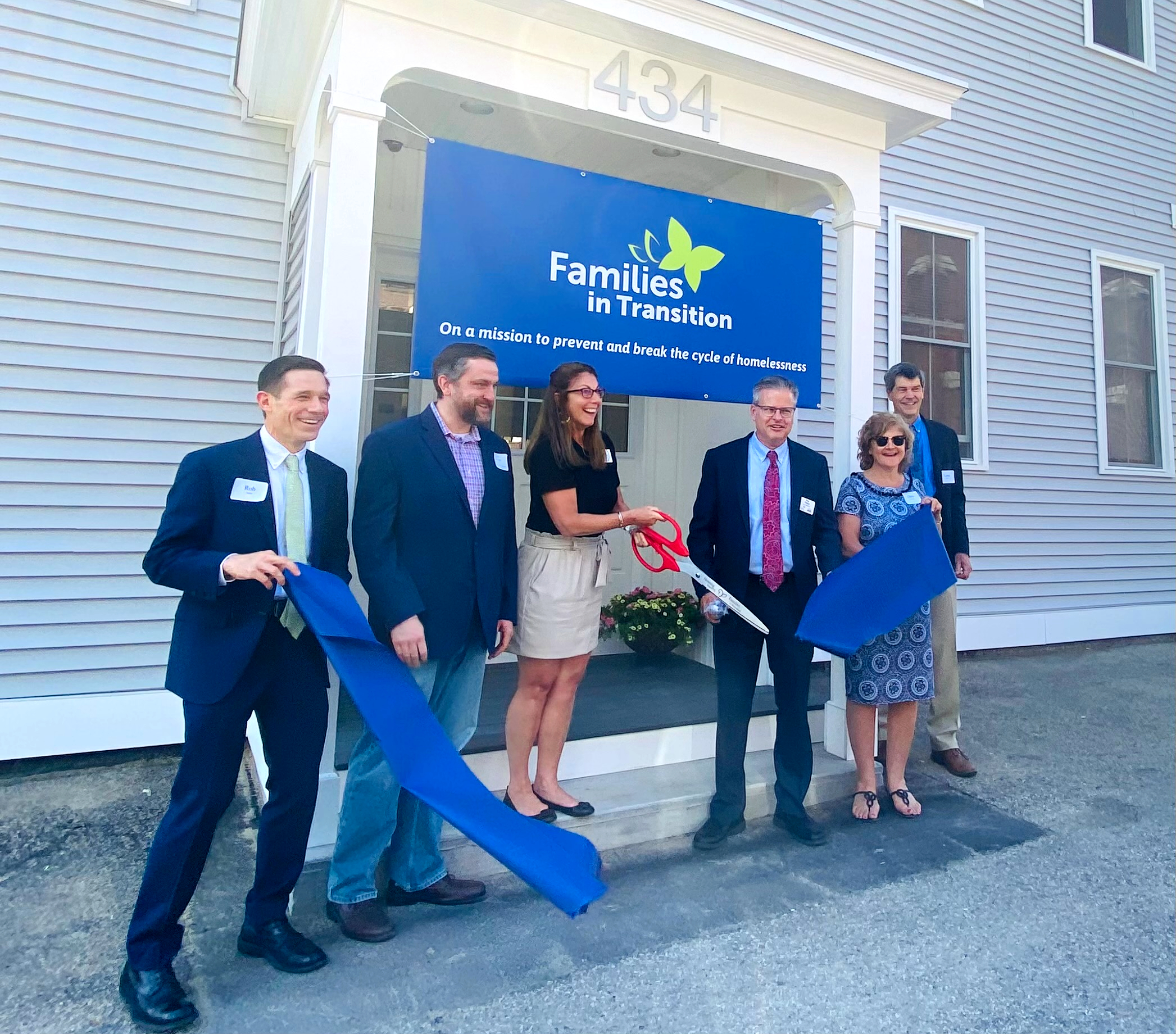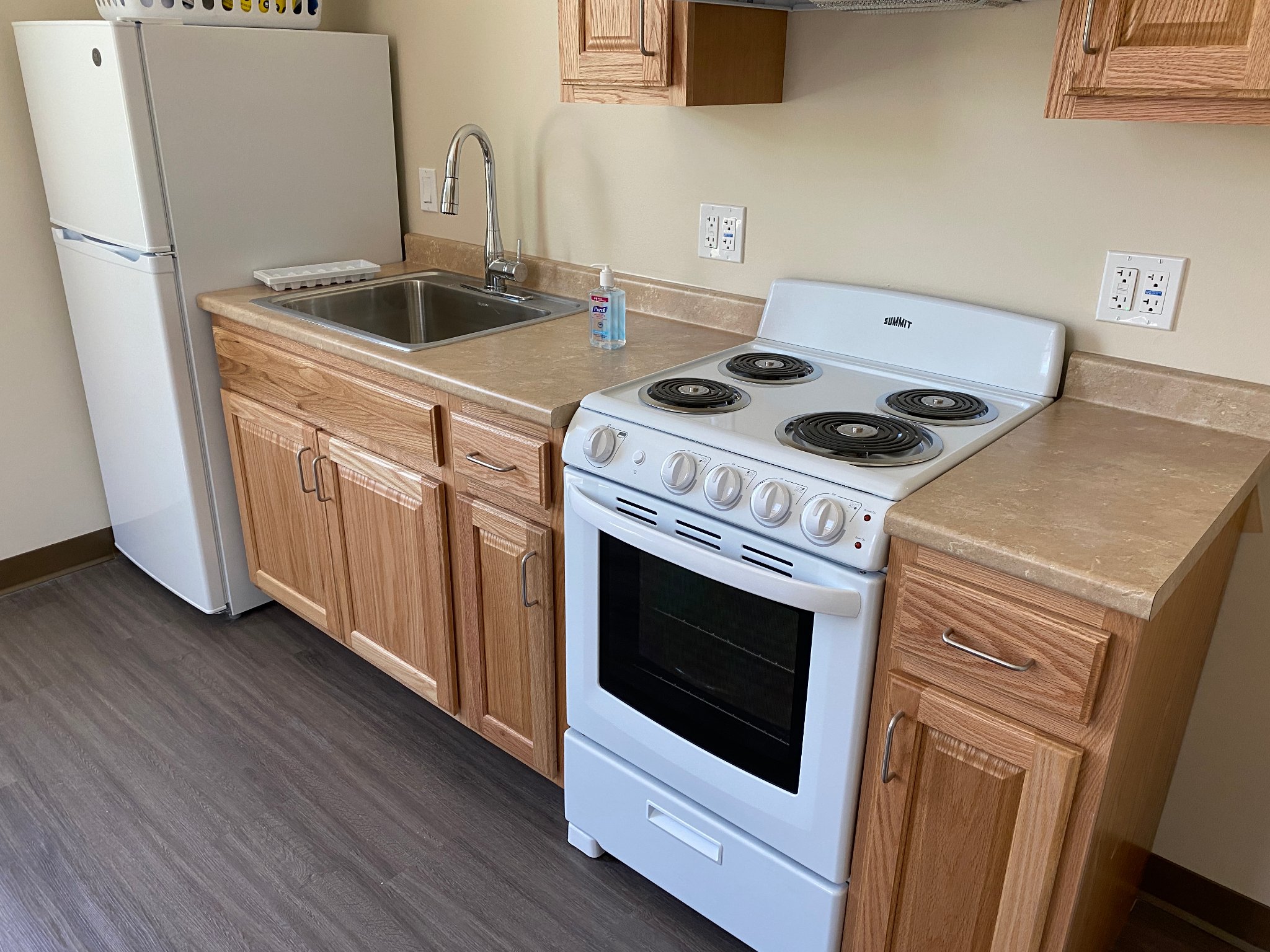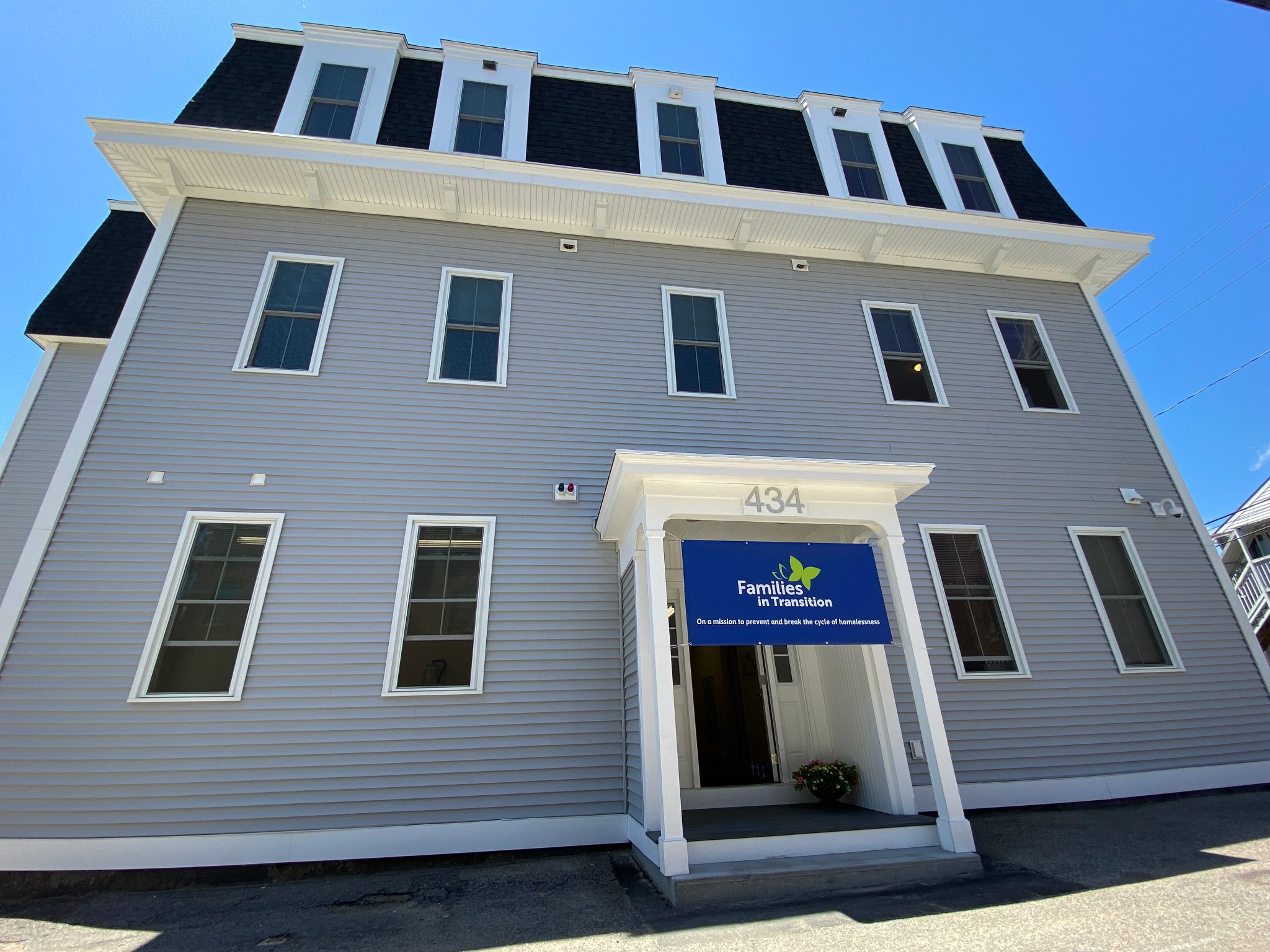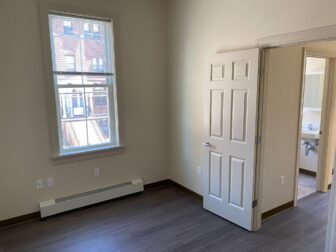
MANCHESTER, NH – People residing in the city’s Manchester Street shelter will move to the head of the list for one of 11 new, affordable studio or one-bedroom apartments unveiled Tuesday on Union Street.
The 11 units of housing are located at 434 Union St., a three-story building that formerly served as the city’s emergency shelter for women, known as Angie’s Place.
Angie’s Place, which opened in 2000, ceased operation just prior to the pandemic with plans to renovate it.
However, the project was delayed when Families in Transition (FIT) had to pivot during the COVID-19 pandemic. The number of beds available at the 199 Manchester St. shelter was reduced because of the need for individuals to socially distance themselves.

As a result, Angie’s Place was used to accommodate the overflow and for those who had to be quarantined. In March 2021, the building shut down again and the following September the renovation project began.
On May 24, officials from FIT (Families in Transition), the New Hampshire Department of Health and Human Services, NH Housing and the city of Manchester were on hand for a ribbon-cutting ceremony celebrating the completion of the $1.9 million project.
Funding came from HUD, New Hampshire Housing and included $690,000 awarded by the city and made available through the federal HOME program from HUD.
The renovated building has four, one-bedroom apartments, seven studio units and two Americans with Disability Act accessible units on the first floor. Each has a small kitchen and bathroom.
Tenants pay 30 percent of their income, with the remainder covered by a housing voucher. To qualify for the new housing, they must be below 20 percent of area gross median income and meet the definition of homeless (an individual or family who lacks a fixed, regular and adequate nighttime residence).

Program participants also receive access to individualized case management and referrals to other community resources to ensure they meet their desired goals.
The 434 Union St. residence is more than a building, it’s a long-term promise to assist participants in attaining and maintaining long-term housing and financial stability, according to FIT. The program assists participants to attain their personal identified program goals related to maintaining permanent housing, employment/education, financial stability and mental/physical health.
“We understand the challenges people are facing when trying to find and retain housing to break the cycle of homelessness,” said Maria Devlin, FIT’s president and CEO. “This is a successful blueprint that we have and will continue to replicate to make a real impact on this issue.”
Mayor Joyce Craig, who was unable to make the ceremony, issued a statement saying the project was a small part of a “wider strategy to ensure anyone who stays at Families in Transition’s emergency shelter is there only temporarily. We know this challenge requires partnerships. This effort will make a difference in the lives of people at risk of getting stuck in a recurring cycle of homelessness.”
Chris Santaniello, associate commissioner of NH Department of Health and Human Services and co-lead of the NH Council on Housing Stability, said the project fits well into the Council’s goals of increased affordable and permanent supportive housing targeted for the homeless.
“We must continue to expand access to safe, affordable housing and meet the needs of all people in our state,” she said. “The model that Families in Transition has created is something that can be replicated across the state.”
In 2021, FIT served 1,724 individuals in its housing and emergency shelter programs; 216 families with children and 395 children under the age of 18.
Additionally, through its programs last year it served 193,230 meals and each month provided groceries to 534 households.
To learn more about the organization or get involved, visit www.fitnh.org or call 603-641-9441.









